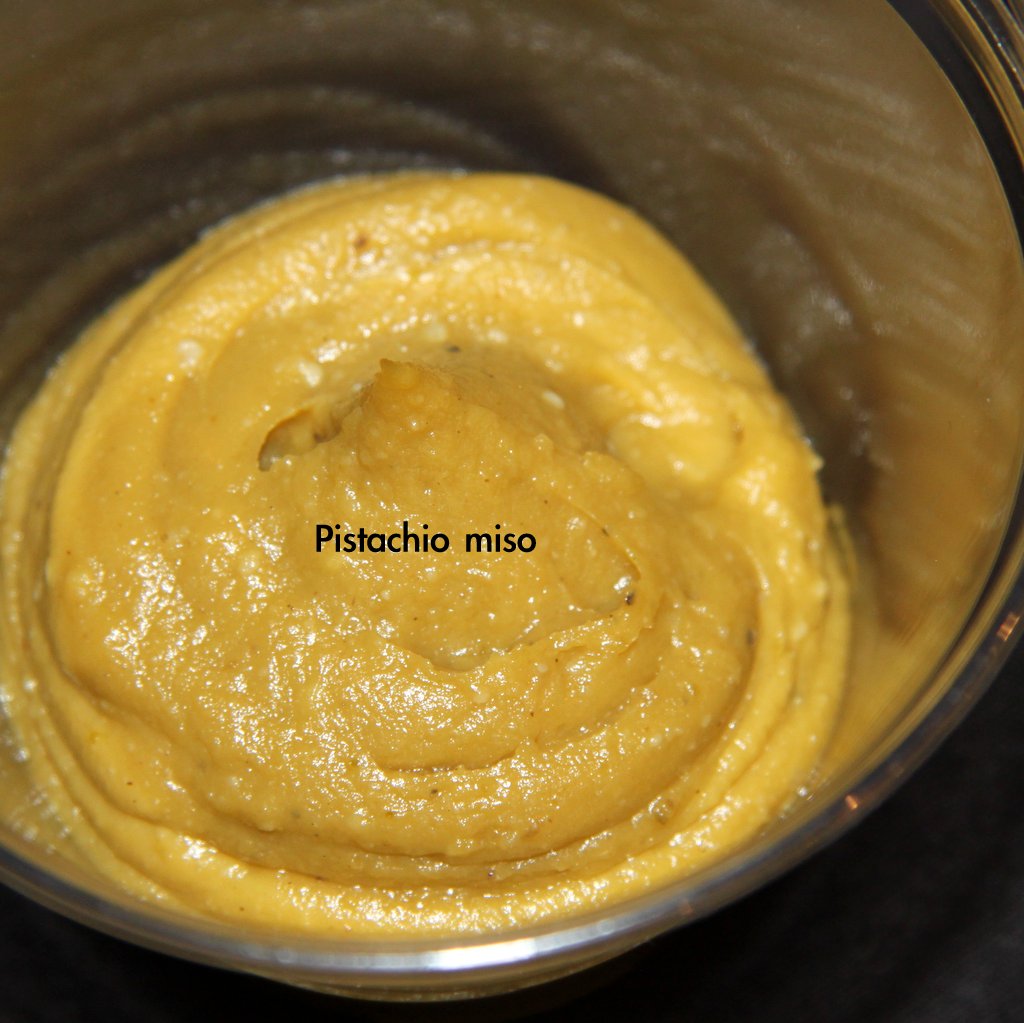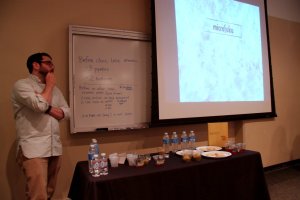Veronica Trevizo
Veronica Trevizo is the Development Chef at Momofuku Culinary Lab. Veronica hails from California, where she was born in San Diego, attended the California Culinary Academy, and worked at such venues as the Four Seasons in San Diego and the San Francisco establishments Jardinière and Michael Minas. She also spent time working at Spagos in Maui and has worked all over Europe, completing stages in Spain and at Noma in Copenhagen, before relocating to New York to work in the Momofuku Culinary Lab.
- What hooked you on cooking?
- I grew up in a traditional Hispanic family in which every month there was some sort of barbecue or grand family dinner. My fondest memories of my childhood revolve around those special occasions. I always found myself in the kitchen with my mother and Tias preparing the meals, feeling excited as I watched them cook and sneaking bits of food and knowledge. When they tried to shoo me from the kitchen, I stayed, and to this day I don’t want to be anywhere else.
- The coolest example of science in your food?
- I would have to agree with Dan and select our ongoing projects based around microbes and fermentation. At the Momofuku Culinary Lab we have been quite successful with our projects involving miso and other traditional fermentative products. These projects generated relationships and connections with experts in the scientific field, furthering our understanding and abilities to explore just how far we can evolve food sciences. It is my personal goal to continue to progress the collaboration between food and academia.
- The food you find most fascinating?
- Processed food. I find it fascinating that so much work and money is used to produce foods that are unhealthy, poor tasting, and downright bad for people.
- What scientific concept–food related or otherwise–do you find most fascinating?
- • Maillard reaction: when compounds form together, creating new compounds that make a very distinctive flavor. For example, crust on bread and sugar to make caramels.
• MSG: there are so many ideas out there but none that are really true. This subject always seems to start a conversation.
• Neurogastronomy: an understanding of why we perceive something as delicious or disgusting fascinates me. The age old fight: “my mother’s food is better than yours!” There is so much going on that we just don’t fully understand yet.
- Your best example of a food that is better because of science?
- Milk. Pasteurization is a science win that absolutely highlights the importance of science in food.
- How do you think science will impact your world of food in the next 5 years?
- In the past years, we’ve seen the huge impact that science has had in our kitchens. A great example is the science-imagined and science-enabled equipment like centrifuges, cryovacs, and sous vide machines. Using equipment that is seen in laboratories now in almost every kitchen makes both fields more robust and makes our work even more informative for the public. As a cook, it has also helped me understand that scientists and chefs are not so different. I would say the impact is already here in the culinary world but I definitely see much more collaboration in the future. It starts with equipment and continues with the sharing of knowledge.
- One kitchen tool you could not live without?
- A knife.
- Five things most likely to be found in your fridge?
- • Butter
• Valentina hot sauce
• Leftover takeout
• Homemade penicillin projects (aka some old bread…)
• Honestly, not that much! The fridge I’m thinking about is always the one at the lab.
- Your all-time favorite ingredient?
- I can’t live without salt!
- Favorite cookbook?
- My favorite cookbook… there are so many. I do love Julia Child and remember reading Mastering the Art of French Cooking religiously as a child.
- Your standard breakfast?
- I usually just have black coffee. But I do love chilaquiles!







